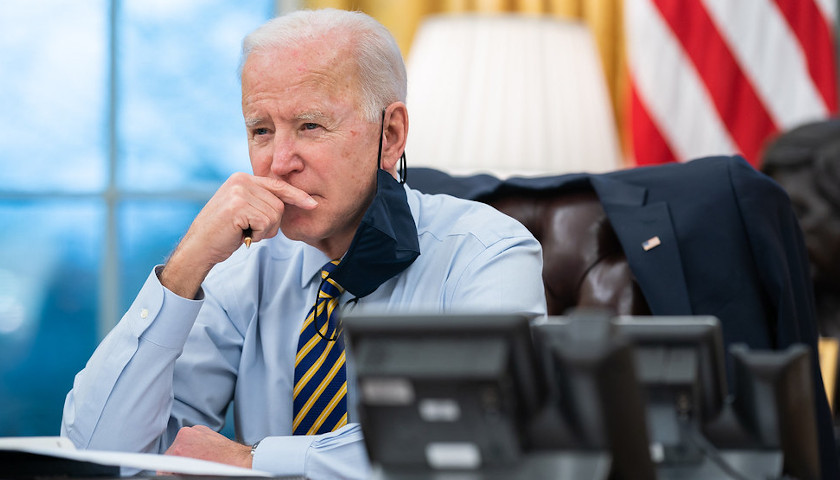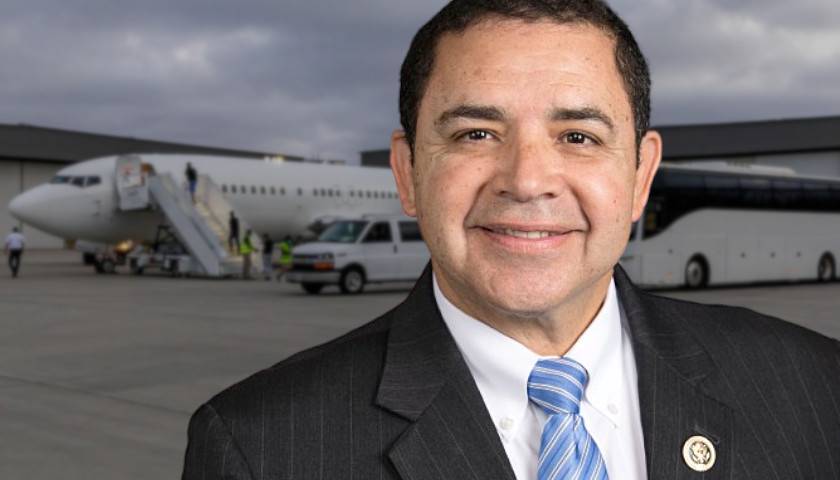by Trevor Carlsen
The “circle back” meme in the Biden White House isn’t limited to Jen Psaki’s avoidance of tough questions at press briefings. The Biden administration demonstrated that it also intends to circle back to the way things were under the Obama years when it comes to managing Medicaid. Rather than taking a cooperative approach to the state and federal partnership, Obama 2.0 is committed to running the program by decree and eliminating flexibilities that improve the program. Unfortunately, states hoping for true flexibility will be disappointed, as Medicaid flexibility has departed for Mar-a-Lago.
Last month, the Centers for Medicare & Medicaid Services (CMS) put several states on notice that their existing Section 1115 waivers are under review and could have their approval withdrawn. CMS cites the COVID-19 pandemic for cover but ultimately acknowledges that the administration’s real issue with the existing demonstrations is a concern that “allowing work and other community engagement requirements to take effect … would not promote the objectives of the Medicaid program.” Interestingly, certain beneficiaries’ requirements to work or volunteer for 20 hours a week met the Medicaid program’s objectives when CMS issued the waivers. So, what changed? Those waivers were granted during an administration that valued greater flexibility and cooperation with states. That’s all over now that the old Obama crew is back in town and running CMS again.
The Biden administration yanking back work requirements demonstrates a reluctance to grant states flexibility on Medicaid, an approach that comes right out of the Obama playbook. States like Pennsylvania and Iowa will recall the frustration of having their commonsense proposals rejected out of hand. State taxpayers were promised at least some conservative policies to lessen the blow of this massive expansion of welfare. Instead, they ended up with programs that are worse off than they were before ObamaCare expansion.
These broken promises are a lesson learned, and the lack of flexibility under the Biden administration is a timely reminder why states should continue to resist pressure to elect ObamaCare Medicaid expansion. Still, even during a favorable administration, it’s a bad idea. The first and most obvious reason is the next administration might not be so flexible—as states that will be seeing their waivers clawed away will come to experience first-hand. But ObamaCare Medicaid expansion is also generally bad policy. Rather than address the structural problems of Medicaid, ObamaCare maintained the flawed financing structure, which has had a crowding-out effect on state budgets. Medicaid is consuming more and more of state budgets, with nearly one out of every three dollars states spend already going to Medicaid. This trend necessarily reduces available dollars for other state functions such as education and public safety. Even worse, the value Medicaid enrollees get from the program comes in well below the amount states are spending.
Even as the pandemic begins to wind down, states need more Medicaid flexibility than ever. Instead, they are seeing more restrictions at every turn. Congressional efforts to help states during the COVID-19 public health emergency came with strings attached that tied states’ hands from saving Medicaid funds for the truly needy. And buried in the CARES Act was a budget-busting de facto Medicaid expansion. Among the provisions of an executive order is a direction that agencies re-examine demonstrations and waivers under Medicaid. The order specifically lists work requirements, but states can be sure that this attack on Medicaid work requirements is only the first such reversal of the Trump administration’s cooperative approach to Medicaid. And this is, unfortunately, only the beginning.
The Obama/Biden crowd doesn’t see a need for partnering with states to lift people out of the Medicaid net. They measure success by the number of people enrolled in the program. But this isn’t success—it’s a recipe for disaster. Policies that remove flexibility should serve as a warning sign to the many states that have rightly avoided Medicaid expansion. These states are going to continue to face pressure and incentives for ObamaCare expansion.
Circling back to the Obama-era approach to the federal-state Medicaid “partnership” right out of the gate is bad news for states that have already expanded Medicaid. But President Biden has done non-expansion states a favor by unveiling these intentions early in his administration. It’s too late for the expansion states; they’re stuck with the massive welfare expansion and no hope for making the program better. Non-expansion states are still in a similar boat—for the next four years, there’s no chance of getting commonsense demonstrations approved—but at least they can avoid becoming saddled with the ObamaCare Medicaid expansion on top of it.
– – –
Trevor Carlsen is a senior research fellow at the Foundation for Government Accountability.






